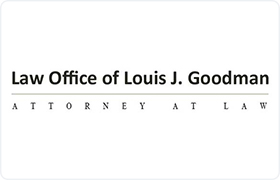Livermore White Collar Crime Lawyer, California
Sponsored Law Firm
-
 x
x

Click For More Info:
-
Louis J Goodman Attorney At Law
1290 B St Suite 307 Hayward, CA 94541» view mapCriminal Defense Law Tough, Experienced, and Professional
If you have been charged with a crime in Alameda County, California, contact The Law Offices of Louis J. Goodman.
510-582-9090
Robert Cummings
Criminal, DUI-DWI, Felony, White Collar Crime, Misdemeanor
The Law Offices of Robert G. Cummings is devoted to the defense of individuals and entities charged with or facing criminal prosecution. Mr. Cummings... (more)
Mark Cohen
Civil Rights, White Collar Crime, Personal Injury, Administrative Law, Commercial Real Estate
Status: In Good Standing
FREE CONSULTATION
CONTACTFREE CONSULTATION
CONTACTVictoria Elaine Horvatich
Litigation, Dispute Resolution, White Collar Crime, Trusts
Status: In Good Standing
David Christopher Frank
Litigation, White Collar Crime, Criminal, Business
Status: In Good Standing Licensed: 34 Years
Patrick Samuel Valencia
Other, Divorce & Family Law, White Collar Crime, Criminal
Status: In Good Standing Licensed: 41 Years
Alan Michael Lagod
International Tax, White Collar Crime, Criminal, Banking & Finance
Status: In Good Standing Licensed: 48 Years
David Christophe Frank
Litigation, White Collar Crime, Criminal, Business
Status: In Good Standing Licensed: 34 Years
Mark Paul Cohen
Civil Rights, White Collar Crime, Personal Injury, Administrative Law, Commercial Real Estate
Status: In Good Standing
Ravinder Singh Johal
Juvenile Law, White Collar Crime, Felony, DUI-DWI, Criminal
Status: In Good Standing Licensed: 19 Years
 Louis J. Goodman Hayward, CA
Louis J. Goodman Hayward, CA Practice AreasExpertise
Practice AreasExpertise

